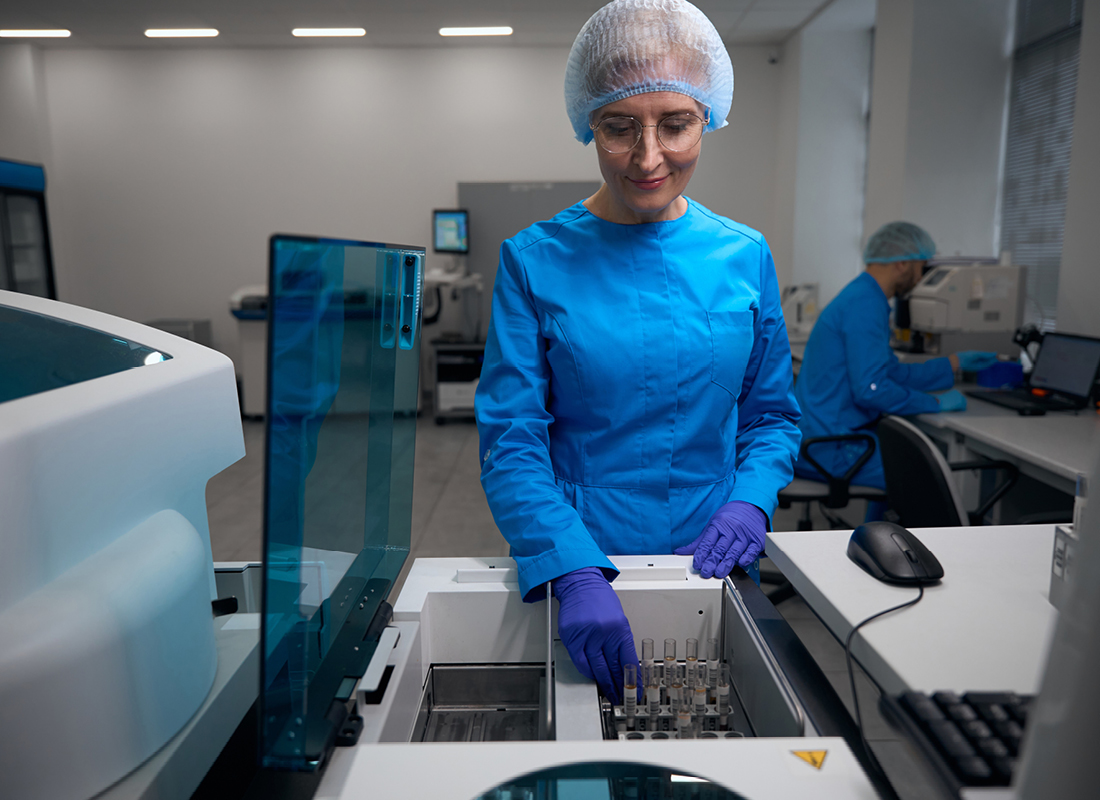Diagnostics Pipeline: FDA Tweaks Quality System Regs to Align with Global Standards
The FDA is adding International Organization for Standardization (ISO) guidelines to its “good manufacturing” requirements

The U.S. Food and Drug Administration (FDA) has issued a final rule making changes to the “good manufacturing” requirements under the Quality System (QS) regulation to “harmonize and modernize” the regulation.1
Essentially, the FDA is tweaking current regulations to ensure they conform with quality standards in other countries. The agency is doing that by incorporating ISO 13485 into its rules. ISO 13485 is a threshold developed by the International Organization for Standardization for the quality management systems used to regulate the production and distribution of medical devices, which include laboratory tests and their related platforms and devices.
The entire ISO system is heavily biased toward risk management—ensuring any issue that could compromise quality in medical device manufacturing and distribution is identified prior to its introduction into any market. ISO 13485 also covers the entire lifecycle of any medical device.
Introducing ISO 13485 to its standard does not mean that the FDA has been ineffective in regulating medical devices for quality issues, rather this update ensures its standards can be applied globally. That may be particularly important given the number of over-the-counter tests developed in China, Korea, and other countries that have been given FDA approval in recent years.
However, the impact on laboratories and companies that develop and distribute tests, platforms, and other related devices is probably minimal, experts say.
“Most international companies likely will already be compliant (with the new FDA regulations), but companies that currently sell only in the US may need to overhaul their quality management systems,” says Sarah Fitzgerald, a senior consultant of quality and regulatory affairs for Emergo, a consulting firm that assists in bringing medical devices to international markets.
Lisa El-Shall, senior director for pharmaceutical and device consulting services for EAS Consulting Group, noted in an email that the regulations touch very lightly on laboratories, if at all: “There really isn’t much in the regs about testing.”
FDA Revokes 6 EUAs for COVID-19 IVDs
On March 21, the FDA posted a notice in the Federal Register that it has revoked the Emergency Use Authorization (EUA) for six different IVD products for detecting and/or diagnosing COVID-19, at the request of their manufacturers. These products include:2
• Life Technologies (a legal entity of Thermo Fisher Scientific) TaqPath™ COVID–19 Pooling Kit, as the company is no longer commercially supporting the kit
• Bio-Rad Laboratories Reliance SARS–CoV–2 RT–PCR Assay Kit, as Bio-Rad has stopped US distribution of the kit
• Revvity (on behalf of Revvity Omics, a Revvity company that was a rebranding of PerkinElmer Genomics) PerkinElmer SARS–CoV–2 RT–qPCR Reagent Kit as the company has stopped using the kit at the Revvity Omics lab
• Two bioMérieux test kits—the VIDAS® SARS–CoV–2 IgM kit and the VIDAS® SARS–CoV–2 IgG kit—as the company is no longer commercially supporting the kits
• Luminex xMAP® SARS–CoV–2 Multi-Antigen IgG Assay, as the company has stopped manufacturing the product
However, El-Shall also observed that “it will remain important to have robust polices and procedures for design controls. That includes design development and planning, design input, design outputs, and design transfer. Clear, detailed design reviews will continue to be required, although ISO 13485 does not require that each stage of design review include an individual who does not have direct responsibility for the design stage being reviewed.”
The new regulations go into effect in early 2026, the FDA said.
Takeaway: Companies developing new laboratory testing platforms and related devices should examine their QMS policies to ensure they conform with the updated policies.
References:
*******************
Key recent FDA approvals of laboratory-related platforms, IVD devices, and over-the-counter tests and products include:
| Company Name | Approval Date | What Was Approved |
| Roche Molecular Systems | March 19, 2024 | cobas® Malaria, Nucleic Acid Test for use on the cobas® 6800/8800 Systems for screening blood samples from human donors for Plasmodium (P. falciparum, P. malariae, P. vivax, P. ovale, and P. knowlesi) DNA and RNA |
| Becton Dickinson | March 15, 2024 | BD Phoenix™ Automated Microbiology System for Ciprofloxacin |
| BTNX | March 8, 2024 | Four approvals of rapid response pregnancy test strips and cassettes |
| Siemens Healthcare Diagnostics | March 8, 2024 | Atellica® CI Analyzer |
| Proscia | March 7, 2024 | Concentriq® DX slide scanner |
| Beckman Coulter | March 6, 2024 | AU480 chemistry analyzer |
| Luminex | March 6, 2024 | LIASON PLEX® Respiratory Flex Assay |
| Beckman Coulter | March 5, 2024 | Dxl 9000 Access Immunoassay Analyzer |
| Shanghai Accurature Diagnostics Co. | March 5, 2024 | 49 approvals for the Accurature multi-drug urine test cup and dip cards |
| TransMed Company | March 4, 2024 | 18 approvals for the CLIA Screen In-Vitro Multi-Drug Test Cup |
| Siemens Healthineers | February 23, 2024 | Two approvals for automated blood coagulation analyzers—CS-2500 and CS-5100 |
| Hologic | February 23, 2024 | Genius™ Digital Diagnostics System with Cervical AI algorithm |
Subscribe to Clinical Diagnostics Insider to view
Start a Free Trial for immediate access to this article